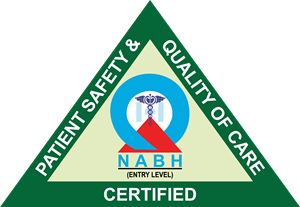Interventional Radiology (IR) is a rapidly evolving medical specialty that utilizes advanced imaging techniques to guide minimally invasive procedures for diagnostic and therapeutic purposes. It involves the use of fluoroscopy, ultrasound, CT scans, MRI, and other imaging modalities to visualize internal structures and perform targeted interventions with precision and accuracy. Interventional Radiology has revolutionized patient care by offering alternatives to traditional open surgeries, resulting in less pain, shorter recovery times, and fewer complications.
Jinkushal Cardiac Care & Superspeciality hospital
Interventional Radiology

Interventional Radiology
Key Aspects Of Interventional Radiology Include:
Diagnostic Tests: We use state-of-the-art technology to perform a variety of diagnostic tests, including-
Diagnostic Procedures:-
Interventional radiologists use imaging technology to diagnose various conditions within the body. This may involve performing biopsies to obtain tissue samples for analysis, evaluating blood flow and organ function, and identifying abnormalities such as tumors, blockages, or vascular malformations.

Therapeutic Procedures:-
Interventional Radiology offers a wide range of minimally invasive treatments for various medical conditions. These procedures are often performed using catheters, needles, and other specialized instruments inserted through small incisions or natural body openings. Common therapeutic interventions include-
- Angioplasty and Stenting: Used to open narrowed or blocked blood vessels, typically in the arteries of the brain (carotid stenting) or other peripheral arteries like renal, limb artery.
- Varicose Vein Treatment: Laser therapy, scleroptherapy ,
- Embolization: The deliberate occlusion of blood vessels to treat conditions such as uterine fibroids, aneurysms, AV fistulas or tumors by blocking their blood supply.
- Tumor Ablation: Techniques like radiofrequency ablation (RFA), microwave ablation, or cryoablation are used to destroy tumors, particularly in the liver, kidney, lung, and bone.
- Thrombolysis: The dissolution of blood clots using medications delivered directly to the site of the clot, often performed in cases of deep vein thrombosis (DVT) or pulmonary embolism.
- Vertebroplasty and Kyphoplasty: Procedures to stabilize fractured vertebrae by injecting bone cement into the affected area, relieving pain and restoring spinal alignment.
- Biliary and Urinary Interventions: Including procedures such as biliary stenting, nephrostomy tube placement, and percutaneous drainage of abscesses or fluid collections.
Pain Management:-
Interventional Radiology techniques are also used to manage chronic pain conditions, such as spinal compression fractures, neuropathic pain, and cancer-related pain. Nerve blocks, epidural injections, and neurolytic procedures can provide significant relief for patients suffering from debilitating pain.
Minimally Invasive Surgery Support:-
Interventional Radiologists often collaborate with surgical teams to assist in complex procedures. They may provide preoperative mapping, intraoperative guidance, or postoperative interventions to optimize patient outcomes and minimize complications.
Advantages:-
The minimally invasive nature of Interventional Radiology procedures offers several advantages over traditional surgery, including reduced risk of infection, shorter hospital stays, faster recovery times, and fewer complications. Additionally, many interventions can be performed on an outpatient basis, allowing patients to return home the same day.
Why Choose Jinkushal Cardiac Care And Superspecialty Hospital For Interventional Radiology?
Expertise:-
Our hospital boasts a team of highly skilled interventional radiologists who are experts in their field. They have undergone rigorous training and possess vast experience in performing a wide range of interventional procedures.
State-of-the-art facilities:-
We are equipped with the latest imaging technology and advanced interventional suites, allowing us to perform procedures with precision and accuracy.
Comprehensive Care:-
At Jinkushal Cardiac Care And Superspecialty Hospital, we offer a comprehensive range of interventional radiology services, ensuring that patients receive all necessary diagnostic and therapeutic interventions under one roof.
Patient-Centered Approach:-
We prioritize patient comfort and safety, and our team is dedicated to providing personalized care to each individual. We strive to minimize discomfort and downtime associated with procedures while maximizing outcomes.
Multidisciplinary Collaboration:-
Our interventional radiologists work closely with other specialists within the hospital, such as cardiologists, oncologists, and surgeons, to ensure that patients receive comprehensive, coordinated care tailored to their specific needs.
Commitment To Innovation:-
We are committed to staying at the forefront of technological advancements and continuously strive to incorporate the latest innovations in interventional radiology into our practice, ensuring the best possible outcomes for our patients.
Interventional Radiology at Jinkushal Cardiac Care and Superspecialty Hospital offers cutting-edge, minimally invasive procedures performed by a team of expert physicians in a state-of-the-art facility, with a focus on personalized care and optimal patient outcomes.




